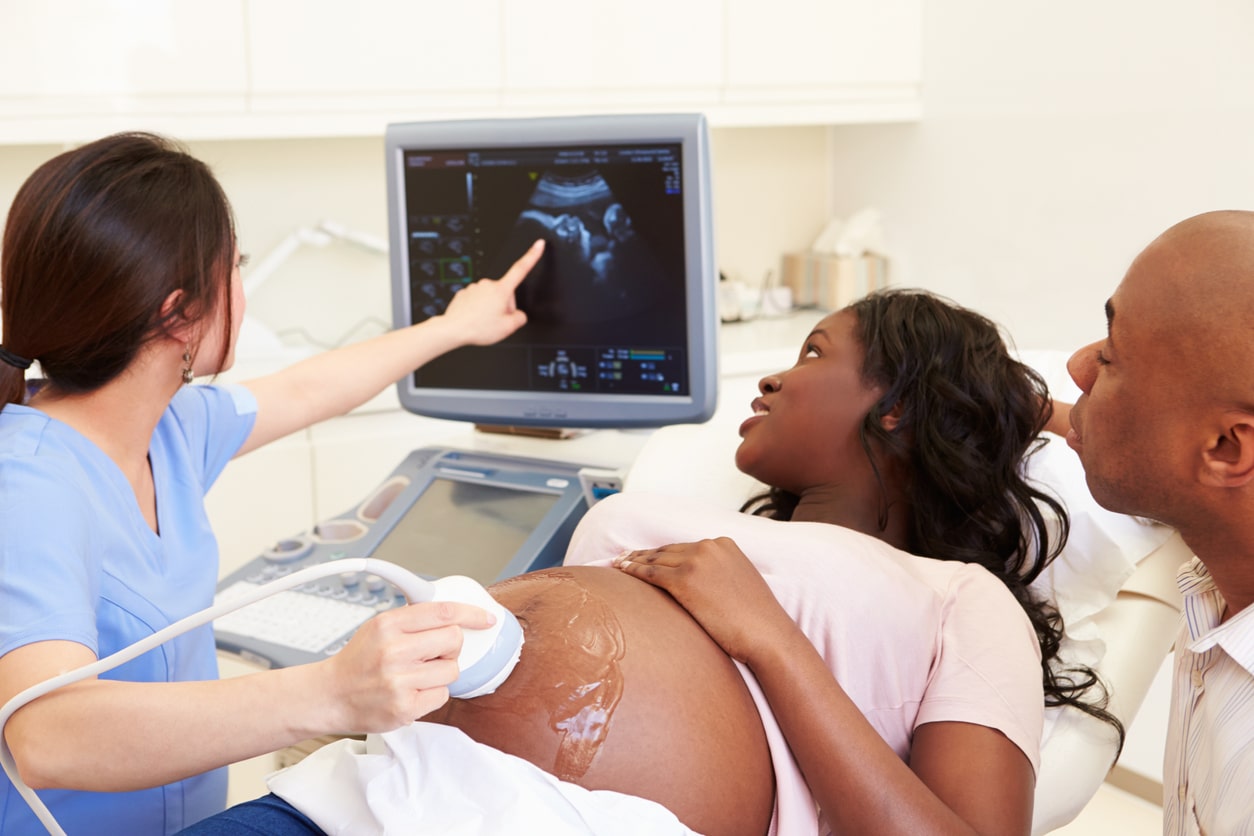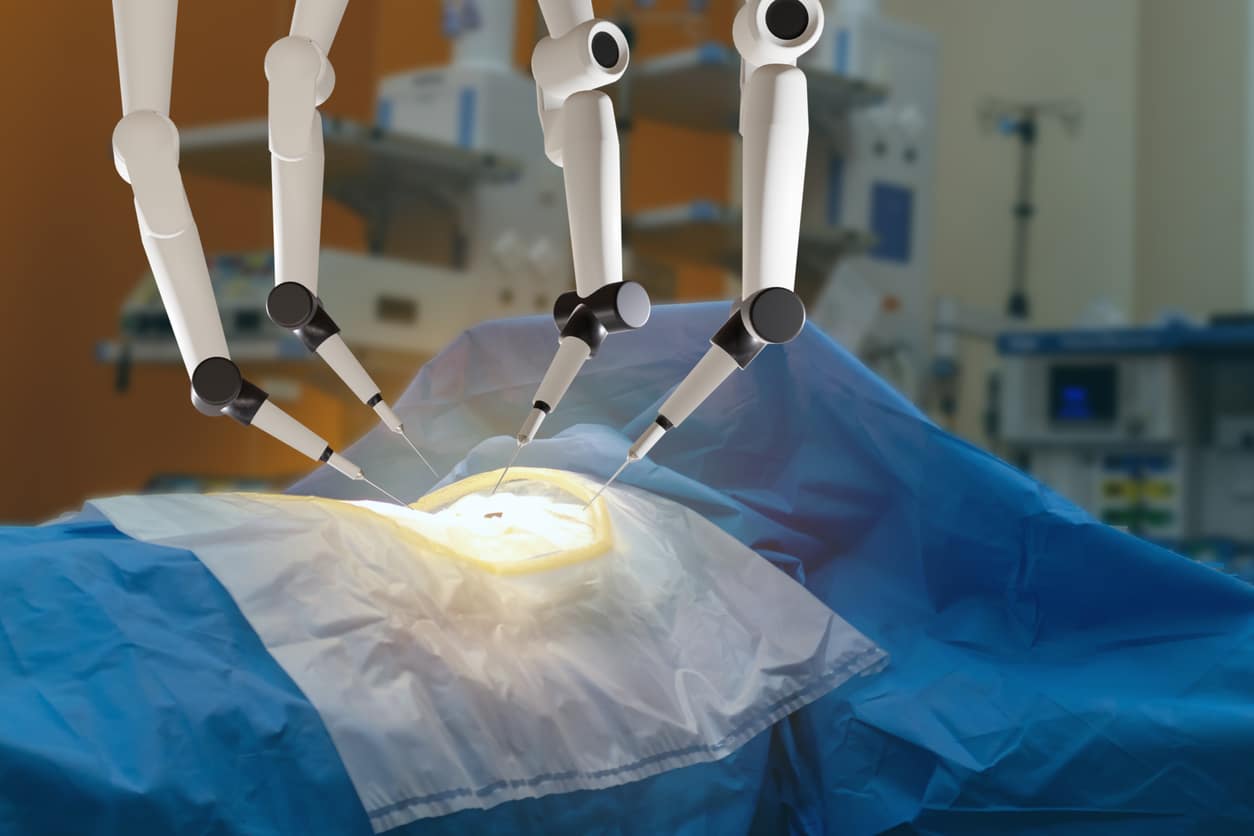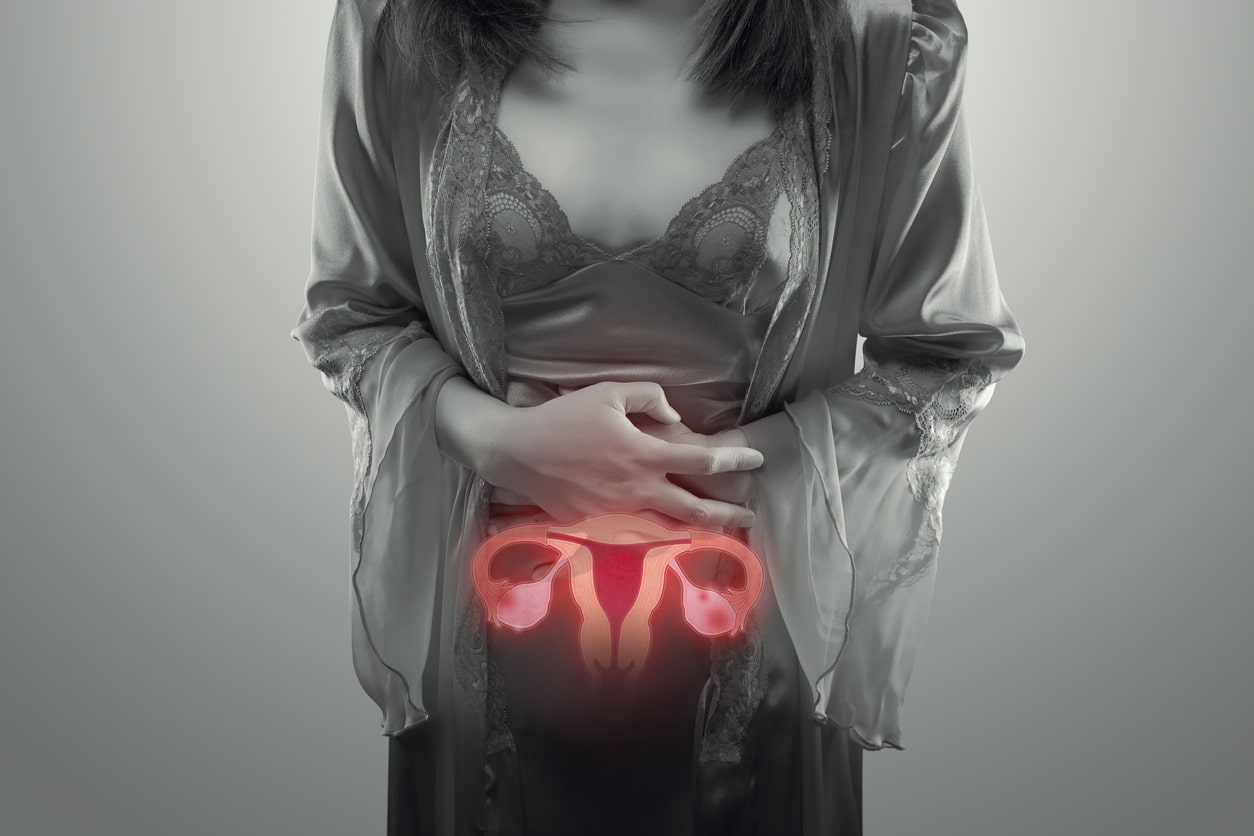An alternative to traditional surgery, a robotic hysterectomy is a cutting-edge technology utilizing the aid…

Endometriosis & Pregnancy: What You Need to Know
Numerous myths and linked conditions are associated with endometriosis, among them being infertility. However, nearly 70% of women with mild to moderate endometriosis can become pregnant naturally. While this statistic is encouraging, we understand that you may have more questions surrounding this condition and your ability to get pregnant.
In this blog, the team at Endometriosis Treatment Center of America (ETCOA) breaks down everything you need to know about endometriosis and its link to pregnancy. We cover everything from how you may feel before delivering your baby to when it’s time to see a doctor, and more.
What Is Endometriosis?
Before we dive into discussing endometriosis and pregnancy, let’s define endometriosis. As we mentioned, there are many questions surrounding endometriosis, and we hope to clarify some of those confusions.
Endometriosis occurs when the uterine lining, called the endometrium, grows outside the uterus. The lining continues to thicken, break down, and then shed as it would in the uterus, but since it’s not in the right place, the blood becomes trapped, leading to pelvic pain, heavy bleeding, painful intercourse, and more.
For some, endometriosis can be linked to infertility, and some women may first be diagnosed with endometriosis when seeking infertility treatment. The cause of infertility in women with endometriosis is unknown. Some think it may be related to pelvic inflammation or structural changes from scarring, but there’s no conclusive answer. However, the professionals at ETCOA are here to help you find proper treatment. We can offer numerous treatments based on the severity and location of your endometriosis so that you can have a greater chance of conceiving.
What Happens During Pregnancy with Endometriosis?
While every woman is unique, knowing what to expect during pregnancy can be helpful. Some women may notice an improvement in their endometriosis symptoms. This can be due to various factors, but the increased progesterone levels can sometimes provide relief. In fact, the synthetic version of progesterone, called progestin, is often used as a treatment for endometriosis.
Or, you may notice a worsening or no improvement in your symptoms at all. If this is the case, don’t hesitate to talk to your doctor about safe medications you can take while pregnant. We also recommend home remedies like warm baths, yoga, plenty of rest, and a healthy diet.
What Complications Are Women with Endometriosis More Likely to Experience?
While studies are ongoing, there are a few complications that women may experience because of endometriosis. During pregnancy, your body and your hormonal levels change, which can lead to these risk factors.
Some of the conditions to be aware of include:
- Placenta Previa: A low-lying placenta occurs when the placenta attaches to the bottom of your uterus instead of the top or side, which can cause bleeding throughout pregnancy and during delivery. If you notice any bright red vaginal bleeding, seek medical care as soon as possible.
- Ectopic Pregnancy: Ectopic pregnancy happens when the fertilized egg grows outside your uterus, like in the fallopian tubes. Women with endometriosis are more likely to have an ectopic pregnancy, so if you notice any back pain, vaginal bleeding, or cramping, contact your doctor.
- Preterm Birth: Women with endometriosis may be more likely to have a preterm birth, which means the baby is born before 37 weeks of gestation. Regular contractions and pelvic pressure can be a sign of premature birth, so don’t hesitate to call your doctor if you feel anything out of the ordinary.
- Miscarriage: You may be more likely to miscarry if you have endometriosis. While miscarriage can’t be prevented, we recommend staying in frequent contact with your doctor during your pregnancy so that you can be aware of any warning signs and discuss any questions you may have.
When Should You Talk to Your Doctor?
If you want to become pregnant and currently suffer from endometriosis, we advise speaking with your doctor. They can do a full fertility assessment and discuss any potential problems you may have trying to conceive. If you do need assistance with conception, your doctor can create a unique plan for you and your partner.
It may be beneficial to undergo treatment for your endometriosis symptoms, like hormonal therapy or minimally invasive surgery. Or, if you’re struggling to get pregnant, they can offer procedures that can assist with conception, like in-vitro fertilization (IVF).
While we may sound like a broken record, notifying your doctor of any changes before, during, or after your pregnancy can not only offer peace of mind but can help keep you and your baby healthy.
You’re Not Alone in Your Pregnancy with ETCOA
If you have endometriosis, starting a family may feel impossible. However, many women conceive naturally and have healthy, happy babies. Understanding potential complications, treatments, and more can offer tangible ways to be proactive.
At ETCOA, we prioritize communication and frequent visits and encourage a strong awareness of your body. If needed, we can help diagnose and treat infertility and provide reproductive medicine designed to help you conceive. You’re not alone in your journey with our team of compassionate, knowledgeable, and professional experts. If you need help becoming pregnant with endometriosis, reach out to our team today!
ETCOA: Your Trusted Infertility Experts
Proudly serving Lake Orion & Birmingham, MI, and beyond, we’d be honored to be a part of your journey. We offer in-person and virtual care so that every woman can find treatment. If you’d like to learn more about endometriosis and pregnancy, request an appointment by calling (248) 397-9129 or contacting us online.
Numerous myths and linked conditions are associated with endometriosis, among them being infertility. However, nearly 70% of women with mild to moderate endometriosis can become pregnant naturally. While this statistic is encouraging, we understand that you may have more questions surrounding this condition and your ability to get pregnant.
In this blog, the team at Endometriosis Treatment Center of America (ETCOA) breaks down everything you need to know about endometriosis and its link to pregnancy. We cover everything from how you may feel before delivering your baby to when it’s time to see a doctor, and more.
What Is Endometriosis?
Before we dive into discussing endometriosis and pregnancy, let’s define endometriosis. As we mentioned, there are many questions surrounding endometriosis, and we hope to clarify some of those confusions.
Endometriosis occurs when the uterine lining, called the endometrium, grows outside the uterus. The lining continues to thicken, break down, and then shed as it would in the uterus, but since it’s not in the right place, the blood becomes trapped, leading to pelvic pain, heavy bleeding, painful intercourse, and more.
For some, endometriosis can be linked to infertility, and some women may first be diagnosed with endometriosis when seeking infertility treatment. The cause of infertility in women with endometriosis is unknown. Some think it may be related to pelvic inflammation or structural changes from scarring, but there’s no conclusive answer. However, the professionals at ETCOA are here to help you find proper treatment. We can offer numerous treatments based on the severity and location of your endometriosis so that you can have a greater chance of conceiving.
What Happens During Pregnancy with Endometriosis?
While every woman is unique, knowing what to expect during pregnancy can be helpful. Some women may notice an improvement in their endometriosis symptoms. This can be due to various factors, but the increased progesterone levels can sometimes provide relief. In fact, the synthetic version of progesterone, called progestin, is often used as a treatment for endometriosis.
Or, you may notice a worsening or no improvement in your symptoms at all. If this is the case, don’t hesitate to talk to your doctor about safe medications you can take while pregnant. We also recommend home remedies like warm baths, yoga, plenty of rest, and a healthy diet.
What Complications Are Women with Endometriosis More Likely to Experience?
While studies are ongoing, there are a few complications that women may experience because of endometriosis. During pregnancy, your body and your hormonal levels change, which can lead to these risk factors.
Some of the conditions to be aware of include:
- Placenta Previa: A low-lying placenta occurs when the placenta attaches to the bottom of your uterus instead of the top or side, which can cause bleeding throughout pregnancy and during delivery. If you notice any bright red vaginal bleeding, seek medical care as soon as possible.
- Ectopic Pregnancy: Ectopic pregnancy happens when the fertilized egg grows outside your uterus, like in the fallopian tubes. Women with endometriosis are more likely to have an ectopic pregnancy, so if you notice any back pain, vaginal bleeding, or cramping, contact your doctor.
- Preterm Birth: Women with endometriosis may be more likely to have a preterm birth, which means the baby is born before 37 weeks of gestation. Regular contractions and pelvic pressure can be a sign of premature birth, so don’t hesitate to call your doctor if you feel anything out of the ordinary.
- Miscarriage: You may be more likely to miscarry if you have endometriosis. While miscarriage can’t be prevented, we recommend staying in frequent contact with your doctor during your pregnancy so that you can be aware of any warning signs and discuss any questions you may have.
When Should You Talk to Your Doctor?
If you want to become pregnant and currently suffer from endometriosis, we advise speaking with your doctor. They can do a full fertility assessment and discuss any potential problems you may have trying to conceive. If you do need assistance with conception, your doctor can create a unique plan for you and your partner.
It may be beneficial to undergo treatment for your endometriosis symptoms, like hormonal therapy or minimally invasive surgery. Or, if you’re struggling to get pregnant, they can offer procedures that can assist with conception, like in-vitro fertilization (IVF).
While we may sound like a broken record, notifying your doctor of any changes before, during, or after your pregnancy can not only offer peace of mind but can help keep you and your baby healthy.
You’re Not Alone in Your Pregnancy with ETCOA
If you have endometriosis, starting a family may feel impossible. However, many women conceive naturally and have healthy, happy babies. Understanding potential complications, treatments, and more can offer tangible ways to be proactive.
At ETCOA, we prioritize communication and frequent visits and encourage a strong awareness of your body. If needed, we can help diagnose and treat infertility and provide reproductive medicine designed to help you conceive. You’re not alone in your journey with our team of compassionate, knowledgeable, and professional experts. If you need help becoming pregnant with endometriosis, reach out to our team today!
ETCOA: Your Trusted Infertility Experts
Proudly serving Lake Orion & Birmingham, MI, and beyond, we’d be honored to be a part of your journey. We offer in-person and virtual care so that every woman can find treatment. If you’d like to learn more about endometriosis and pregnancy, request an appointment by calling (248) 397-9129 or contacting us online.



